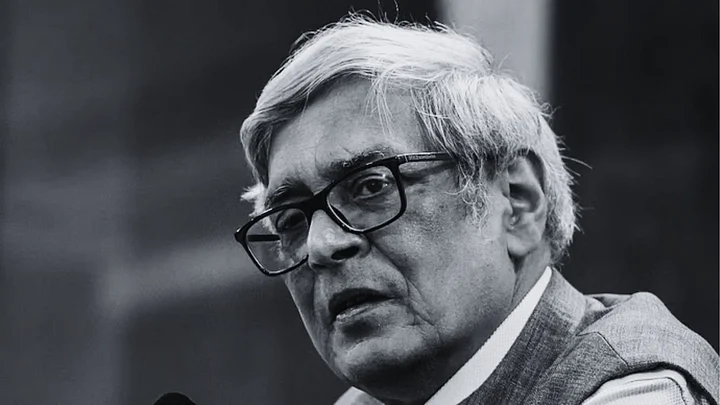Bibek Debroy, chairman of the PM’s economic advisory council, has passed away. He was 69. Four days ago, before his death, Mr Debroy wrote his own obituary (see here), saying, “There is a world outside that exists. What if I am not there? What indeed.”
Reading this deeply reflective obituary written by Mr Debroy himself brings out his ingenuity and remarkable ability to communicate complex emotions and personalised ideas with great clarity and prose.
He leaves behind an invaluable and towering intellectual legacy, the breadth of which can hardly be captured by any obituary written on him or in celebratory reference to his academic, policy, ideological, humanist, and literary contributions (including a priceless history of India-made fountain pens).
His commitment to epistemic knowledge systems, democratising complex vernacular ideas through a rich translation of epics, made him apply the interdisciplinarity of knowledge not only in thought but in practice, without being over-identified with the pursuit of any (given) discipline or scholarship.
From trade reform to legal, regulatory, railway, and economic reform, there is no aspect of the reform-based approach undertaken over the last few decades that was not touched by his critical-thinking prowess.
This is particularly inspiring given how Mr Debroy could never be defined as an institutionalised academic or a university professor, since he spent more time outside academia or university-based silos writing on academic subjects, contributing to different scholarships perhaps far more than what institutionalised intellectuals do in their field these days.
Pratap Bhanu Mehta in a recent column (rightly) calls him a person of his own, someone who could manage to exist and influence decision-making inside and outside the government, with unplumbed depth in an otherwise bhakti-obsessed bureaucratic cobweb of Delhi.
As Mehta adds, “What struck me the most in that conversation about the Mahabharata was his character: his extraordinary tenacity, a sense of being possessed, as if he were following some inner law of his own being.”
As someone who happened to meet Mr Debroy on a few occasions upon his visit to our university campus in Sonipat, and in Delhi, I attest to feeling this while being around him, engaging on academic issues.
Though, in argument and debate, there was more to disagree with him, particularly on public policy and the current government’s policy ideology (as incoherent it still is), his energy, clarity, and tenacious exuberance provided a distinct, reflective equilibrium.
As almost an epistemic musician, he could bring, cite, and extrapolate uncommon knowledge from any field or scholarship as a musical saam (rhythm) to any critical dialogue, adding sense and objectivity with enviable clarity.
His debate on the post-liberalisation economy of India with Pronab Sen at our campus is an occasion one can’t miss recollecting. In any of the rebuttals and points offered to Dr Sen’s reasoned arguments, Mr Debroy hardly quoted mainstream economics, data or jargon, but could still respond with coherent arguments citing illustrative references to public law and Constitutional provisions for justifying his views.
Apart from being industriously arduous and self-driven, Mr Debroy also personified the rare craft of contributing, quite prolifically, profound observations through great simplicity using stories, shlokas, classical literature, historical anecdotes, law, or even an anecdote of lived experience which could help him solidify a perspective. You couldn’t ignore him (despite recurring disagreements) while engaging with him.
It would take a long time before India can experience and learn from the work of another Bibek Debroy. He truly will be remembered as a person of his own.
[Deepanshu Mohan is Professor of Economics and Dean, IDEAS, Office of InterDiscplinary Studies, OP Jindal Global University (JGU), India. His teaching affiliation for taught courses in areas of comparative political economy, development studies, research methods, is with the Jindal School of Liberal Arts and Humanities at the University (JGU), where he is also Director, Centre for New Economics Studies (CNES), and Senior Research Fellow, International Institute of Higher Education (IIHED). He is currently visiting Oxford University as a Visiting Research Fellow at the Asian and Middle Eastern Studies (AMES). Prof. Mohan is also a Visiting Professor at the London School of Economics and Political Science, and is associated with Birkbeck College’s Faculty of Social Sciences as an Honorary Research Fellow.]
